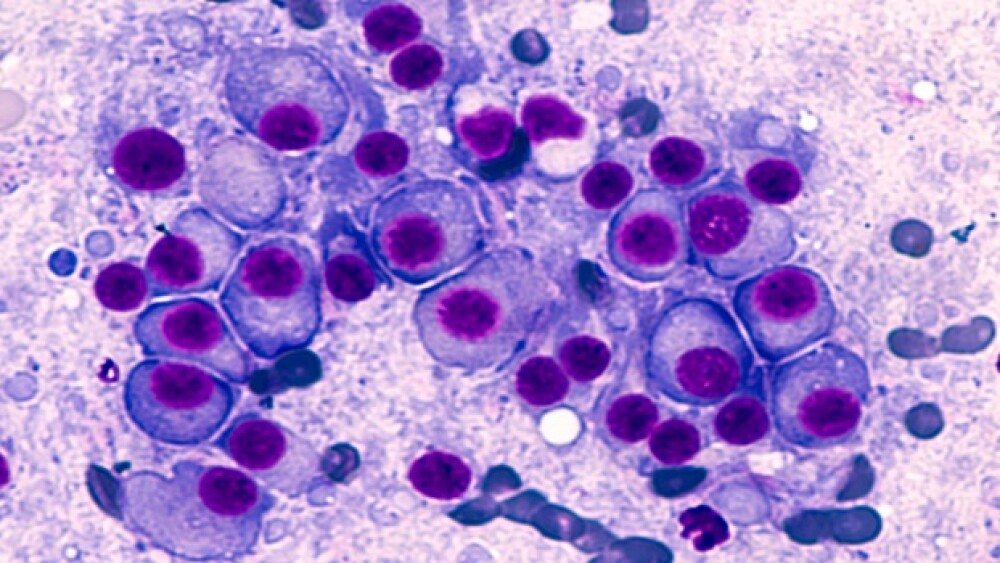Shares of Karyopharm Therapeutics have skyrocketed more than 36% after the U.S. Food and Drug Administration approved the Newton, Mass.-based company’s treatment for multiple myeloma.
Shares of Karyopharm Therapeutics have skyrocketed more than 36% after the U.S. Food and Drug Administration (FDA) approved the Newton, Mass.-based company’s treatment for multiple myeloma.
On Wednesday, the FDA gave the green light to selinexor in combination with dexamethasone for the treatment of patients with relapsed refractory multiple myeloma who have received at least three prior therapies and whose disease is refractory to at least one proteasome inhibitor, one immunomodulatory agent and one anti-CD38 monoclonal antibody. The approval process had something of a rocky road after FDA briefing materials for an advisory committee meeting raised concerns over the drug’s safety profile. Those concerns caused a delay in the approval, which was originally scheduled for April of this year. The advisory panel recommended delaying approval until additional data is available from the Phase III BOSTON study. Data from that trial was not expected until the end of the year. Following that recommendation, Karyopharm submitted additional, existing clinical information as an amendment to the NDA, which allowed the FDA to extend the PDUFA action date by three months until July 6.
The ongoing, randomized Phase 3 BOSTON study evaluating selinexor in combination with Takeda’s multiple myeloma drug Velcade (bortezomib) and low-dose dexamethasone will serve as the confirmatory trial, Karyopharm said in its announcement.
That patience paid off for Karyopharm. The FDA approved selinexor, a first-in-class, oral Selective Inhibitor of Nuclear Export (SINE) compound, which will be sold under the brand name Xpovio. In its announcement, Karyopharm said Xpovio is the first and only nuclear export inhibitor approved by the FDA for the treatment of patients with multiple myeloma whose disease is refractory to proteasome inhibitors, immunomodulatory agents and an anti-CD38 monoclonal antibody. Xpovio functions by selectively binding to and inhibiting the nuclear export protein exportin 1 (XPO1), which is also called CRM1. Karyopharm Chief Executive Officer Michael G. Kauffman said the accelerated approval of Xpovio targeting XPO1 represents the first approval against a new target in myeloma since 2015.
Sharon Shacham, founder and chief scientific officer of Karyopharm, said the approval of Xpovio provides heavily pretreated multiple myeloma patients a “new therapeutic option to treat their disease.”
Karyopharm anticipates getting the newly-approved drug in the hands of patients as quickly as possible. The company expects Xpovio to become commercially available in the U.S. by July 10. A Marketing Authorization Application for selinexor is also currently under review by the European Medicines Agency.
Xpovio’s approval was based on data from the Phase IIb STORM trial that included 123 patients with RRMM who had received at least three prior treatments. Trial data showed an overall response rate of 25.3 percent, which included 23 patients who experience a partial response. Sundar Jagannath, director of the multiple myeloma program at Tisch Cancer Institute at Mount Sinai School of Medicine and principal investigator of the STORM trial, said the 25.3% response rate “is clinically meaningful and a validated surrogate marker for clinical benefit in our patients with advanced refractory disease.”





